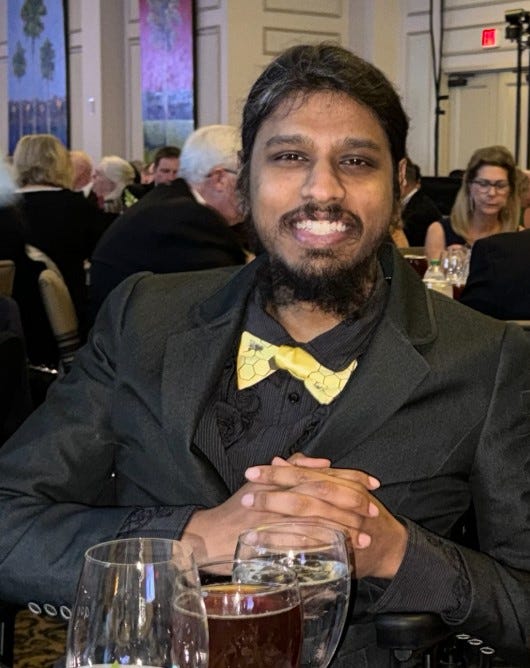As 2014 FSU shooting victim Ronny Ahmed tells it, “There’s no putting Pandora back in the box.”
Days after a gunman killed two and injured six on Florida State University’s Tallahassee campus, Ahmed said he is skeptical there will be any cure to America’s gun violence epidemic.
Ahmed, then a 21-year-old biomedical engineering student, was one of three people injured in the last FSU shooting at Strozier Library. He was shot in the spine, resulting in paralysis from the waist down and limited use of his right arm, but eventually returned to FSU to complete his degree.
Still, he said, “if my own family had a hard time caring and understanding what I was going through, what hope or chance does the average American have to truly be able to help these kids?”
Now he’s just angry. “I don’t really know what else to feel,” he said.
Policymakers have had a decade to reverse the tide of gun violence, yet shootings keep happening, he said.
While FSU might not be liable in this latest shooting, somebody is, he said. Ahmed sued FSU over his injuries, which ended in a $1 million settlement.
Regarding the most recent victims, Ahmed said he “would just listen to them, more than anything, because no one listened to me when I was in that situation.”
Navigating life in a wheelchair, Ahmed keeps pushing to live a full life.
The now 32-year-old is vice president of Life Worth Leading, a Tallahassee-based nonprofit organization that works to improve the lives of veterans, people with disabilities, and underserved populations with scuba diving, cycling and therapy animals.
Ahmed is working to get enrolled into flight school to get a pilot’s license and has dreams of one day attending graduate school.
“One of the things I heard so much in that hospital, afterwards in the wheelchair, (or) stuck in bed, ‘I don’t know what to do, I don’t know what to say, I don’t know how to help you,’ ” Ahmed said.
But he sees this as merely an excuse. “I have, essentially, a third of a working body,” he said, and “I still do everything I can to help the people around me, to check on my friends, to ask and care about the people around me.”
Ahmed said the way these tragedies end is through education and talking with one another. “But … we don’t talk to our kids. We put them in front of iPads and expect them to raise themselves.”
Now is not the time for “doom scrolling” and “yelling at random strangers online about their political opinions,” he added. “We only have one life here, and for some people, it’s very short.”
Ronny Ahmed with hospital therapy pet
Local government watchdog reporter Elena Barrera can be reached at [email protected]. Follow her on X: @elenabarreraaa.
This article originally appeared on Tallahassee Democrat: FSU Strozier shooting survivor speaks out about latest mass shooting
Read the full article here
